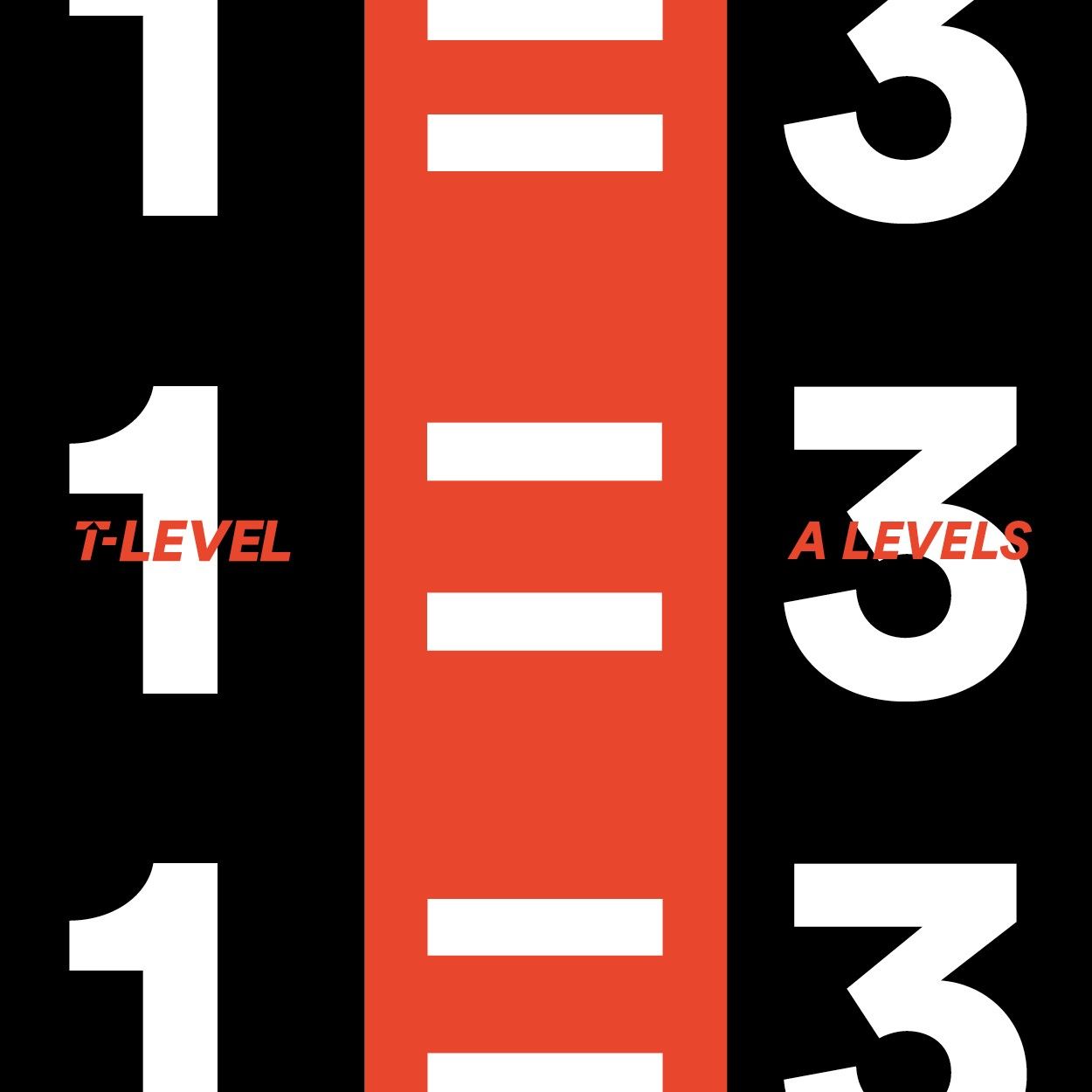
About T Levels
T Levels are a 2-year qualification that you can do after GCSEs as an alternative to A levels, other post-16 courses or an apprenticeship.
They have been designed with leading businesses and employers to give you the knowledge and skills you need.
Get ahead in your career
You’ll spend 80% of your time in the classroom and 20% on a 45-day placement with an employer to give you the skills and knowledge companies look for.
Your industry placement gives you the chance to learn what a real career is like while you continue your studies. When and how you complete it depends on the T Level, school or college, and employer.
Like A levels, there are no tuition fees to study a T Level if you start before you are 19.


Equivalent to 3 A Levels and awarded UCAS points
Your T Level will be worth UCAS points (a T Level Distinction* is worth the same as 3 A levels at A*) and will be recognised by universities and other education providers so you can choose to continue studying if you wish.
The Department for Education have published a list of higher education providers who will consider T Levels for entry onto at least one course. You can find the link here.
Qualifications that count
When you pass your T Level, you will get a nationally recognised certificate showing the overall grade you achieved - pass, merit, distinction or distinction*. It will also give details of what you learned on the course to help you move into skilled employment or a higher apprenticeship.
“In 2025, over 91% of T Level students achieved a ‘Pass’ or above.”


T Level Foundation Year
Think you might like to do a T Level, but need additional help to get you ready to do one? The T Level Foundation Year is a 1-year post-GCSE study programme designed to prepare you for your chosen T Level.
It will enable you to develop your English and maths, practical, technical and study skills, and provide work experience to help you excel in your T Level.
Talk to your T Level school or college to see if this could be right for you.
